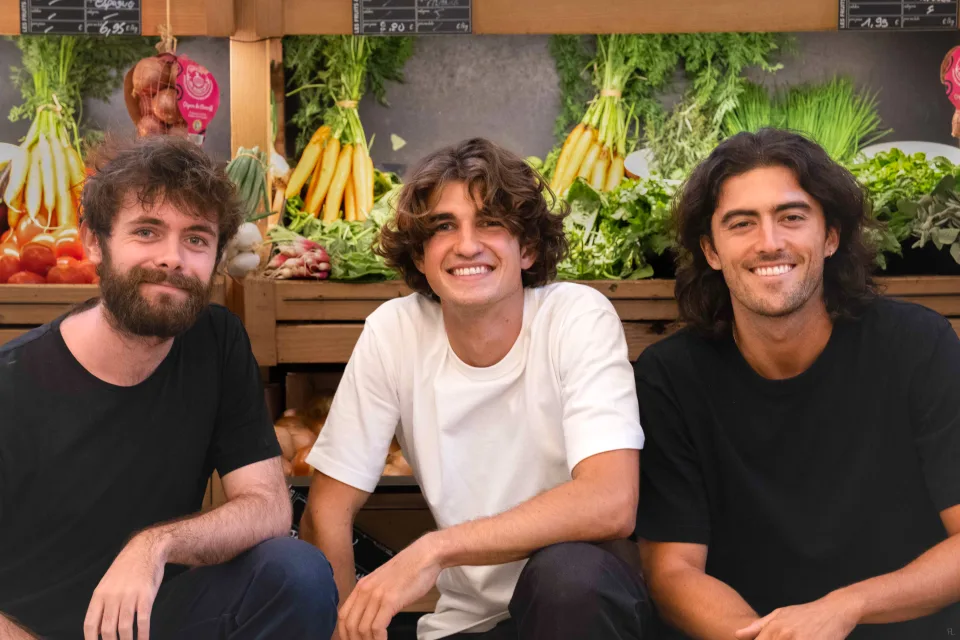What is Ida?
Ida is a French startup that intends to transform how supermarkets and grocery businesses manage fresh product orders through a tablet app. It seeks to collaborate with supermarkets and grocery stores to optimize new orders of fresh products, including fruits, vegetables, meat, poultry, and fish. Ida optimizes the reordering process by employing innovative technology and data analysis, decreasing food waste and ensuring stores have the proper stock to fulfill customer demand. It is gaining popularity as Frst, Daphni, Motier Ventures, and Kima Ventures recently invested $2.9 million (€2.7 million) in the startup.

What is the problem with the current system?
Grocery stores currently rely primarily on order sheets with a high number of columns that describe the reordering schedule. These error-prone tables result in both food waste and scarcity. Supermarkets are either losing money or passing up potential revenue.
The co-founder and CEO Mateo Beacco said, “The person in charge will take these sheets of paper and a pen. They’ll then go over the stock reference by reference, line by line. Then they’ll make a guess and say, “OK, right now, I’ve got a good feeling about eggplants.” Or “The weather is nice today, so let’s go for four crates of two kilograms of eggplants,”
Of course, it’s not entirely a guess, as experienced people will look at previous years for trends to determine whether it’s time to order additional strawberries. However, there has been an increase in turnover in these positions in recent years. Even for workers who have worked in the same grocery shop for a year, it isn’t easy to be precise every day.

What’s the solution presented?
Ida is a tablet app linked to a sales forecasting algorithm that alerts humans when it is time to replenish new products. Ida wishes to alter this process by providing grocers with the necessary tools.
Ida is starting with veggies and fruits but may soon grow to include meat and seafood. Ida is addressing an underserved segment of the supermarket inventory by focusing on perishable goods, as it is relatively straightforward to forecast how many cereal boxes you have in your shop thanks to bar codes and associated points of sale. As Beacco said, “SAP gives you a rolling average.” Ida does not merely observe what happens at the end of purchase because it does not function well for veggies and fruits. Instead, the organization creates a probabilistic inventory that considers real-world scenarios.
“With a probabilistic inventory, my cucumber sales are mixed with my organic cucumber sales because when you buy organic cucumbers, the cashier will count them as non-organic cucumbers,” he explained. Another example: you can certainly preserve potatoes for a long time, but cherries spoil quickly. Instead of needing to count how many cucumbers you presently have, Ida can give you a rough estimate of how many cucumbers you have in your store. Of course, if something seems out of place, staff personnel can adjust the inventory counts.
Second, Ida forecasts demand using over a hundred characteristics and at least three years of sales data. Ida considers weather, seasonality, prices, other nearby grocery stores, special offers, and other factors.
Third, Ida will generate your next orders based on the forecasting data. Stores can also set up a safety stock to ensure they don’t run out of a specific item (without over-ordering).
“As I already stated, you order eggplants in 2-kilogram boxes. So, we’re dealing with a mathematical problem known as optimization under constraint. I order in 2kg increments, my shelf holds 5kg, and we’re going to try to take all of the data into account to say that we need four crates, not three or five,” Beacco explained.
Ida needs to handle orders. Instead, staff personnel can personally review everything and make changes as required. Currently, the business thinks that 70 to 75% of Ida’s recommendations are correct and are not manually updated by supermarkets. Once this work is completed, Ida generates purchase forms for the central purchasing office and potentially for local manufacturers because Ida’s tablet software allows it to mix and match providers.



